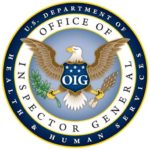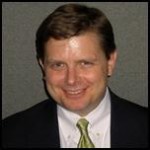 (January 22, 2018): With 2017 behind us, it can be quite helpful to review the Medicare “exclusion” actions taken by the Department of Health and Human Services, Office of Inspector General (HHS-OIG) to gauge the level of regulatory exclusion risk presented by aides and attendants working for personal care agencies around the country. As a review of these actions will show, personal care services aides and attendants were among the most frequent type of health care provider excluded from participating in Federal health care benefits program by HHS-OIG during calendar year 2017.
(January 22, 2018): With 2017 behind us, it can be quite helpful to review the Medicare “exclusion” actions taken by the Department of Health and Human Services, Office of Inspector General (HHS-OIG) to gauge the level of regulatory exclusion risk presented by aides and attendants working for personal care agencies around the country. As a review of these actions will show, personal care services aides and attendants were among the most frequent type of health care provider excluded from participating in Federal health care benefits program by HHS-OIG during calendar year 2017. It is therefore essential that owners of personal care agencies take affirmative steps to ensure that they have robust, effective systems in prevent excluded individuals from being hired or otherwise engaged to care for Medicaid beneficiaries. To accomplish this, agencies must screen their employees, vendors or contractors against all Federal and State exclusion lists every 30 days. An overview of the 2017 exclusion actions taken against personal care aides and attendants is set out below.
I. What is an “Exclusion” Action?
The “exclusion” of individuals or entities from participation in Federally-funded programs is covered under § 1128 of the Social Security Act. When an individual or entity is excluded from participation, the excluded party is essentially barred from Federal health benefits programs. This makes them untouchable by almost any healthcare related entity. With the exception of losing one’s professional license (for instance, if you are a licensed physician, nurse or pharmacist), being excluded is the most severe administrative sanction that can be taken against an individual or entity. Not only is an excluded party barred from participating in government health benefits programs, he / she cannot even work for a party that participates in one or more government health benefits programs.
II. Overview of Personal Care Service Aides and Attendants “Excluded” During 2017”
There are a number of mandatory and permissive authorities upon which HHS-OIG can base an exclusion action. Depending on the reason for exclusion, an individual or entity can be excluded for an undetermined minimum period up to a permanent exclusion from participating in Federal health benefits programs. During 2017, a number of personal care aides and attendants were placed on HHS-OIG’s exclusion list. The reasons for exclusion were primarily grouped into the categories for exclusion described below:
42 U.S.C. § 1320a-7(a)(1): Conviction of program-related crimes 71.73% of all exclusions against personal care providers. Personal care providers were excluded under this mandatory exclusion statute more than any other type of exclusion. For reference only 40.13% of persons excluded across all areas of medical practice areas were excluded under this variety of exclusion. Of the cases reviewed, the personal care aides excluded under this statutory basis were most often charged with theft or billing for services not rendered. For example, in one of the cases reviewed, a Virginia personal care attendant plead guilty to defrauding Medicaid. Over a four year span the attendant was alleged to have been billing Medicaid while out working at a part time job. The attendant in this case supposedly defrauded Medicaid thousands of dollars. Since the individual was excluded under one of the “mandatory” statutory bases, the personal care attendant was excluded for a minimum of 5 years. This type of case comprised 71.73% of all personal care exclusions in 2017.
42 U.S.C. § 1320a-7(b)(5): Exclusion or suspension under federal or state health care program 18.06% of all exclusions against personal care providers. Last year, HHS-OIG cited this statutory basis when excluding 18.06% of the personal care aides and attendants from participating in Federal health benefit programs. In comparison, this statutory basis was only cited in 3.17% of the universe of 2017 exclusions.
42 U.S.C. § 1320a-7(a)(3): Felony conviction relating to health care fraud 1.83% of all exclusions against personal care providers. In 2017 1.83% of excluded personal care providers were excluded under this statute which is much smaller than the 7.59% rate of total.
42 U.S.C. § 1320a-7(a)(4): Felony conviction relating to controlled substance 26% of all exclusions against personal care providers. This category of exclusion is the rarest for personal care at .26% while it represents 5.97% of total healthcare exclusions. It generally describes highly overt incidents in which a provider was directly involved with the illegal acquisition or sale of controlled substances. Persons excluded under this statute are excluded for drug related crimes and generally including conspiracy, direct sale of controlled substances, or other means of improperly handling controlled substances.
III. Are Your Agency’s Screening Practices Exposing You to Civil Monetary Penalties?

When considering your affirmative obligation to “screen” employees, contractors, vendors and other eligible parties against Federal and State exclusion lists, it is important to keep in mind that the government has been “excluding” physicians and other individuals and entities convicted from program related crimes from participating in the Medicare and Medicaid programs for more than 30 years.
[1] With the subsequent passage of the Civil Monetary Penalties Law in 1981, HHS-OIG received statutory authorization to impose civil monetary penalties, issue assessments and pursue program exclusions actions against individuals and entities that submit false, fraudulent and / or improper claims for Medicare or Medicaid payment.[2]
Simply speaking, an excluded person (or an organization employing an excluded person) is in violation of the exclusion rules if the excluded person furnishes to Federally-funded health care program beneficiaries items or services for which Federal health care program payment is then sought. In the case of Medicaid-eligible personal care services, since the Medicaid is funded, in part, by the Federal government, the program qualifies as a Federal health care program.
You may face severe penalties if your organization employs or contracts with an excluded individual or entity and subsequently bills for tainted services provided to Medicaid beneficiaries. For example, in 2017,[3] under 42 C.F.R. §1003.210(a)(1), the civil monetary penalty that may be imposed against a health care provider or supplier for ordering or prescribing medical or other item or service during a period in which the person was excluded was $11,052 per violation.
Notably, the penalties that can be assessed by HHS-OIG if an organization is found to have improperly employed or contracted with an excluded individual party or individual are substantially more severe if the organization is a Medicare Advantage Organization or an HMO. Under 42 C.F.R. §1003.410, the penalty faced by a Medicare Advantage organization in 2017 was $37,396 per violation. Similarly, under 42 C.F.R. §1003.410, the penalty faced by an HMO was $48,114 per violation.
IV. What Steps Should Your Personal Care Services Agency Take to Limit its Level of Risk?
From a risk standpoint, it isn’t sufficient to merely include a question in your employment application asking applicants if they are currently (or have ever been) excluded from participation in a Federal or State health benefits program OR been debarred from a Federal program. Even the most detailed applications for employment can prove useless if your personal care services agency’s due diligence efforts are ineffective. People lie. Sorry, that’s just how it is. A 2017 survey by conducted by HireRight found that 85% of job applicants lied or misrepresented one of more facts on their resumes or job application forms during screening. As HireRight wrote:
“Eighty five percent of survey respondents uncovered a lie or misrepresentation on a candidate’s resume or job application during the screening process – up from 66% five years ago.”
So what is the answer? The ONLY way to reduce your level of regulatory risk with respect to the accidental or unknowing employment or engagement of an individual or contracting entity is to make sure that all Federal and State exclusion databases are screened every 30 days.
V. Conclusion:
Government oversight of your agency’s operations will only increase in the future. As we have seen in the case of exclusions enforcement, over the last three decades, the government’s efforts focused on the improper provision of care and / or submission of claims by excluded parties has risen each year. Today, thirty-eight states currently maintain a state exclusion database of individuals and entities that have been excluded from participating in Medicaid and other Federally-funded health benefits programs. The number of states maintaining Medicaid exclusion databases varies from year to year, but is steadily increasing. We anticipate that within the next five years, almost all states will have implemented a Medicaid exclusion database. Unfortunately, there isn’t a government-sponsored site that consolidates the 40+ databases you need to be checking on a monthly basis. Therefore, we strongly recommend that you utilize the services of an organization such as Exclusion Screening
. Their services are inexpensive yet comprehensive.
The monthly exclusion screening of your employees, contractors and vendors is an important component of your Compliance Program. In fact, it is likely one of the least expensive steps you can take TODAY to significantly reduce your level of regulatory risk. We recommend you contact the folks at Exclusion Screening to obtain a complimentary assessment of your organization’s needs.
Call Exclusion Screening at 1-800-294-0952 or fill out the form below for a free quote and an assessment o your exclusion compliance needs.
 Robert W. Liles, J.D., M.B.A., M.S., serves as Managing Partner at Liles Parker, PLLC. Liles Parker is a health law firm representing personal care agencies and other health care providers around the country in connection with Medicare, Medicaid and private payor audits. For a complimentary consultation, give Robert a call at: (202) 298-8750.
Robert W. Liles, J.D., M.B.A., M.S., serves as Managing Partner at Liles Parker, PLLC. Liles Parker is a health law firm representing personal care agencies and other health care providers around the country in connection with Medicare, Medicaid and private payor audits. For a complimentary consultation, give Robert a call at: (202) 298-8750.
[1] The Medicare-Medicaid Anti-Fraud and Abuse Amendments, Public Law 95-142 (now codified at section 1128 of the Social Security Act) was enacted into law in 1977.
[2] This legislation was followed four years later with the passage of the Civil Monetary Penalties Law (CMPL), Public Law 97-35 (codified at section 1128A of the Act). This legislation provided HHS-OIG with the authority to pursue a range of administrative sanctions, up to and including exclusion, against individuals and entities found to have submitted false, fraudulent or improper claims to the government for payment.
[3] Under the Federal Civil Penalties Inflation Adjustment Act Improvement Act of 2015, HHS is required to make annual inflation related increases to its CMP regulations. We do not anticipate these updated regulations to be issued for 2018 until February or later of this year.
 (January 22, 2018): With 2017 behind us, it can be quite helpful to review the Medicare “exclusion” actions taken by the Department of Health and Human Services, Office of Inspector General (HHS-OIG) to gauge the level of regulatory exclusion risk presented by aides and attendants working for personal care agencies around the country. As a review of these actions will show, personal care services aides and attendants were among the most frequent type of health care provider excluded from participating in Federal health care benefits program by HHS-OIG during calendar year 2017.
(January 22, 2018): With 2017 behind us, it can be quite helpful to review the Medicare “exclusion” actions taken by the Department of Health and Human Services, Office of Inspector General (HHS-OIG) to gauge the level of regulatory exclusion risk presented by aides and attendants working for personal care agencies around the country. As a review of these actions will show, personal care services aides and attendants were among the most frequent type of health care provider excluded from participating in Federal health care benefits program by HHS-OIG during calendar year 2017. 
 Robert W. Liles, J.D., M.B.A., M.S., serves as Managing Partner at Liles Parker, PLLC. Liles Parker is a health law firm representing personal care agencies and other health care providers around the country in connection with Medicare, Medicaid and private payor audits. For a complimentary consultation, give Robert a call at: (202) 298-8750.
Robert W. Liles, J.D., M.B.A., M.S., serves as Managing Partner at Liles Parker, PLLC. Liles Parker is a health law firm representing personal care agencies and other health care providers around the country in connection with Medicare, Medicaid and private payor audits. For a complimentary consultation, give Robert a call at: (202) 298-8750.